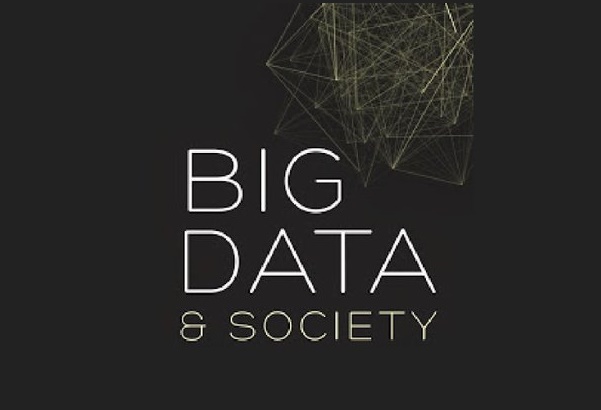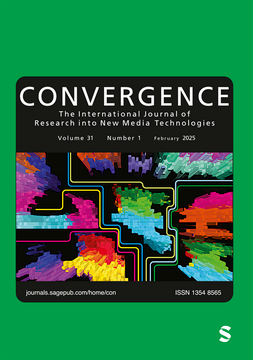Living With Data’s latest two journal articles published!
Home >
Our latest two Living With Data articles, based on interviews with 112 adults in the UK, were published at the end of 2024. These sit alongside many other resources and publications, including reports, visualisations and animations, a data archive, and an evidence review.
Living With Data explored the thoughts, feelings, perceptions and knowledge about public sector data uses of diverse members of the public. We used a range of methods, including visualising data uses, a national survey, focus groups and interviews. Our findings and methodological reflections on data uses are relevant to contemporary debates on AI and data-enabled AI systems.
Living With Data lead Helen Kennedy says:
Our research has challenged assumptions about public perceptions of data uses – for example, that the public can’t understand or don’t care about data uses, or that more knowledge about data uses leads to more positive attitudes about them. It has also advanced understanding of important topics such as transparency, or the role of imagining and imaginaries in understanding data processes. It was quoted in the UK government’s National Data Strategy (2022) and it influenced the Centre for Data Ethics and Innovation’s public attitudes to data and AI tracker survey (2023). And we published lots of resources which we hope will be useful for years to come. All in all, we consider our project a success
The two latest articles are:
How people connect fairness and equity when they talk about data uses was published in Big Data and Society in December 2024.

In this article we engage with academic debates around the utility of concepts such as fairness and equity when talking about data politics. Unlike critical commentators, who see fairness and equity as distinct, and the latter as better at recognising the politics of data, we found that for participants, fairness and equity are interwoven, and that fairness helped them talk about politics.
We argue that these findings:
- challenge assumptions about what does and does not constitute thinking and talking data politics,
- can be seen as a form of everyday data solidarity in their linking of fairness and equity.
What ifs: The role of imagining in people’s reflections on data uses was published in Convergence in November 2024.

In this article we discuss how participants reflected on and came to understand the data use case studies that we presented to them. In recent years, research into what people think and feel about data uses has proliferated, whereas this paper focuses on how they do their thinking and feeling. We argue that imagining – that is, building or creating a mental image of something that is not present – is an important aspect of reflecting on data uses. We challenge the proposition that imagining takes place when there is a gap in knowledge or a lack of information, arguing instead that imagining plays an agentic role in reflection, enabling critical questioning of data uses. These ‘what ifs’, exist in a complex entanglement with different knowledges, including experiential knowledge, that enable reflection on social impacts of data.
Previously published articles include:
Challenging assumptions about the relationship between awareness of and attitudes to data uses amongst the UK public was published in The Information Society in November 2023.

This article advances understanding of the relationship between (a) people’s awareness of and (b) their attitudes towards data, something that is often discussed in data studies and policy circles. In our survey of 2000 adults in the UK, we found greater awareness of data uses was linked to more negative attitudes. This finding is important because it challenges the ‘deficit model’ which underlies initiatives that seek to improve the public’s attitudes toward and trust in institutional data uses. This model assumes that the public has gaps in its knowledge which, if filled, for example by improved transparency or better data literacy, will lead to more positive attitudes. The paper also reflects on the confusion regarding what ‘awareness of’ and ‘attitudes to’ mean, and on the ways that the methodological choices about what to ask survey respondents and how to frame survey questions have consequences for what we can claim our research has found.
Socially meaningful transparency in data-based systems: Reflections and proposals from practice was published in June 2023 in Journal of Documentation.

This article contributes to debates on the strengths and limitations of transparency in relation to data and AI. We argue for a more social, rather than individual, approach to make transparency practice meaningful. We call this ‘socially meaningful transparency’, which, we argue, aims to enhance public understanding of data-based systems. We do this by reflecting on experiences of doing transparency and by proposing our notion of ‘socially meaningful transparency’.
We also offer seven proposals for socially meaningful transparency:
- reduce information asymmetries between organisations and other interested parties about data-based systems (proposed or in operation);
- Foster discussion about what aspects of data systems should be made transparent;
- recognise the societal impacts of a data system;
- communicate clearly and accessibly;
- make visible uncertainties in data-systems;
- transparency practices can take place at various stages;
- resource transparency initiatives adequately.